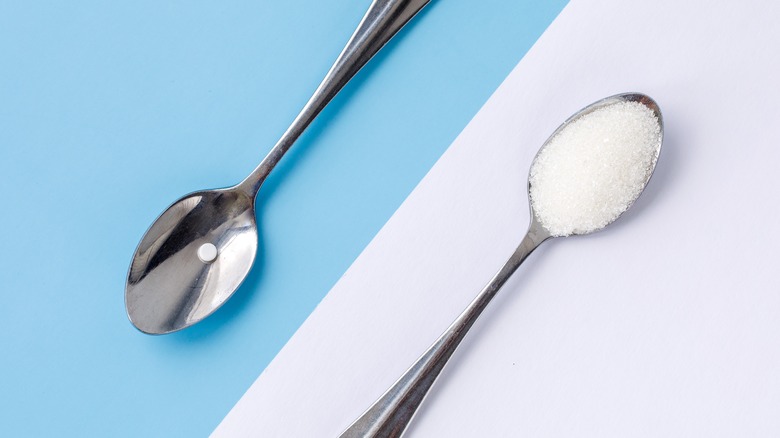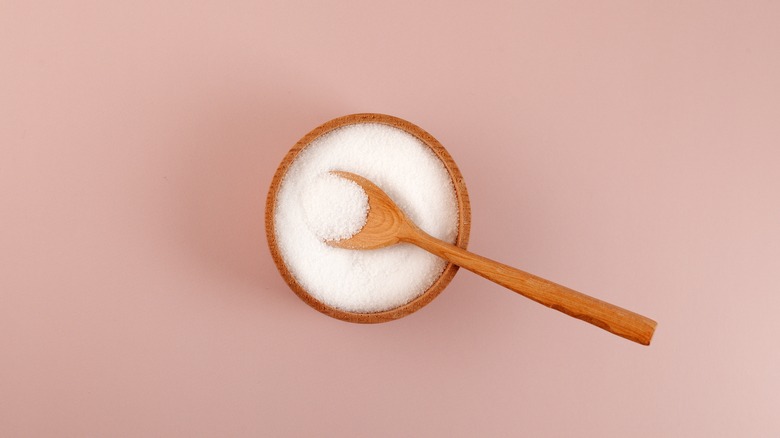What Is Sugar Alcohol? Hint: It's Not As Fun As It Sounds
If you scan food labels as thoroughly as we do, you might have stumbled upon the peculiar food additive called "sugar alcohol" on the ingredient list. It has many names — sorbitol, xylitol, maltitol, lactitol, isomalt, erythritol, hydrogenated starch hydrolysates (HSH), and mannitol. But what has alcohol got to do with your sugar-free cookies and soda? Not that we mind, but have we been getting tipsy without our knowledge?
We hate to break it to you, but as deceiving as the nomenclature is, alcohol as we know it has got nothing to do with sugar alcohol. There is no intoxication involved.
In actuality, sugar alcohols are a form of carbohydrate that share a similar chemical structure to regular sugar. Also known as polyols, sugar alcohols are naturally found in some fruits, vegetables, and cereals like corn cobs, olives, mushrooms, and pineapples, with a hybrid chemical structure of sugar and alcohol molecules. According to ScienceDirect, they are made on an industrial scale by hydrogenating sugars under high pressure or through biotechnological methods.
Per Yale New Haven Hospital, erythritol, xylitol, mannitol, sorbitol, lactitol, isomalt, and HSH are the most commonly used sugar alcohols. Healthline suggests erythritol might be the best of the lot since it causes minimal issues with digestion (as the large intestine doesn't absorb it in large quantities) and has virtually zero calories, with the lowest glycemic index of 1.
Sugar alcohol: the good, the bad, and the ugly
If you are about that "sugar-free" life, chances are you buy products that are labelled as such. Many sugar-free products — chocolate, cough syrup, bakery items, gums, mouthwash, toothpaste ... you name it — use sugar alcohols as a low-calorie substitute for sugar.
By now you know that sugar alcohols are a diet alternative to regular sugar, with up to 50% less calories. Since the body doesn't fully digest them, they don't cause a spike in blood sugar levels as rapidly as regular sugar does. Sugar alcohols are also easy on your teeth and don't cause cavities since the bacteria in your mouth cannot ferment them to cause decay.
On the flip side, sugar alcohols can cause some unpleasant side effects in the body, especially if one exceeds the recommended dosage of 10 to 15 grams per day. When taken in a high amount, they can cause gastrointestinal problems like diarrhea, bloating, and stomach pains. People with IBS are more prone to experiencing the adverse effects of sugar alcohols and should avoid them.
Additionally, xylitol can prove to be fatal to our furry friends, the FDA warns. Keep products with xylitol like sugar-free gums or chocolate out of their reach. If your dog ingests anything that has sugar alcohol, you should immediately take them to a veterinarian or call an animal poison control center.

